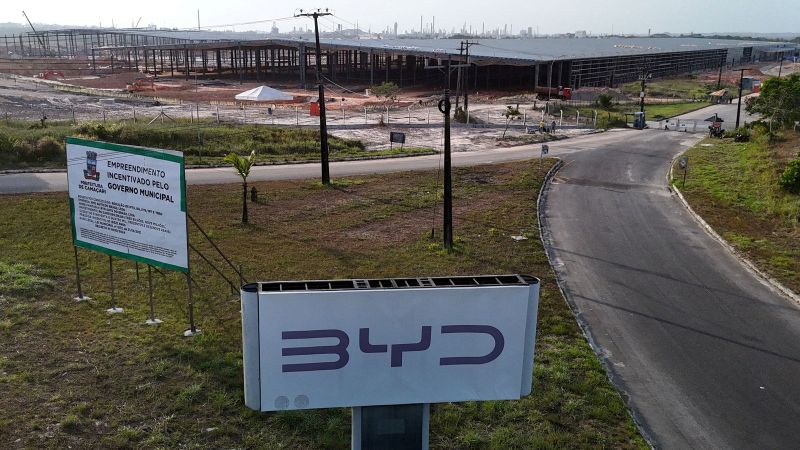Tesla's Declining European Sales and Musk's Impact
Tesla experienced a significant downturn in its European sales, with figures for April plummeting by nearly 50% compared to the same month last year, even as the overall market for battery electric vehicles (EVs) on the continent surged by approximately 28%. Data from the European Automobile Manufacturers Association (ACEA) revealed that Tesla sold only 7,261 vehicles across 32 European countries in April, a steep decline from 14,228 units in April 2024. This dramatic drop has shrunk Tesla's market share in the region from 1.3% in April 2024 to 0.7% in April 2025, signaling considerable challenges for the American automaker in its third-largest market.
A significant factor contributing to Tesla's woes in Europe is the growing backlash against CEO Elon Musk. His controversial public statements, endorsement of the German far-right party AfD, and reported role in the Trump administration, specifically heading up the U.S. President Donald Trump's Department of Government Efficiency (DOGE) and overseeing cuts to government agencies, have drawn widespread criticism from European politicians and consumers alike. This has translated into tangible consequences, with Tesla becoming a target for protests, vandalism, and boycotts in several European countries, notably Sweden, Denmark, and the Netherlands, leading to what analysts describe as lasting brand damage.
The competitive landscape in Europe is also intensifying, posing a major challenge to Tesla. Chinese EV manufacturers are making aggressive inroads, with state-owned SAIC Motor, owner of the MG brand, seeing its European sales jump by 54% in April. Tesla's nemesis, BYD, even surpassed Tesla in European EV sales for the first time in April, underscoring the growing pressure from these often more affordable alternatives. Furthermore, established European automakers like BMW, Renault, and Volkswagen have also reported growth in their EV sales, with VW having overtaken Tesla to become the biggest EV seller in Europe in March.
Internal factors at Tesla have compounded its difficulties. The company's model lineup, particularly the popular Model 3 and Model Y, is perceived by some as aging, with major redesigns overdue. A refreshed version of the Model Y, which began production earlier this year, has so far failed to reverse the declining sales trend. Additionally, temporary factory shutdowns earlier in the year, aimed at upgrading the Model Y production lines, have impacted vehicle supply and delivery capabilities.
The sales slump in April is not an isolated incident but part of a broader negative trend for Tesla in Europe. For the first four months of 2025, Tesla's sales in the region fell by approximately 39% to 61,320 units, while the overall European car market remained largely flat during the same period. This sustained drop in demand is particularly concerning given the general upward trajectory of EV adoption. Some reports also suggest that U.S. President Donald Trump's trade war rhetoric and threats of tariffs on EU goods have negatively impacted European sentiment towards American brands.
Despite the alarming figures, Elon Musk has publicly rebuffed suggestions that Tesla is struggling with demand. In recent statements, he characterized Europe as Tesla's "weakest market" but claimed the business has "already turned around" and is "strong everywhere else." He also mentioned plans to reduce his time allocation to DOGE and recommitted himself to Tesla for the next five years. However, analysts remain cautious, with figures like Russ Mould of AJ Bell noting that Tesla's competitive position, particularly outside the US, looks challenged and that brand damage from Musk's interventions may be lasting. The lack of hybrid options in Tesla's portfolio is also cited as a potential disadvantage as some motorists remain wary of going fully electric.
The European sales decline has inevitably put Tesla's stock under pressure. While shares have seen some recovery recently, the stock is still down nearly 16% year-to-date as of the reports. The falling sales in a key market, especially while competitors are surging, serve as a clear warning for investors. They will be closely monitoring upcoming earnings reports, production numbers for the upgraded Model Y, Tesla’s performance in other major markets like China and North America, and any announcements regarding new models or significant pricing strategy changes.
For Tesla to recover its footing in the competitive European market, swift and decisive action is likely required. Experts suggest several fronts for improvement: updating its aging vehicle lineup to reinvigorate consumer interest, addressing the public perception issues stemming from its CEO's controversies, and ramping up production and deliveries effectively post-upgrades. While the overall European auto market showed slight signs of recovery in April, Tesla faces a unique set of challenges that demand a strategic response to avoid a long-term slide in this crucial region.











